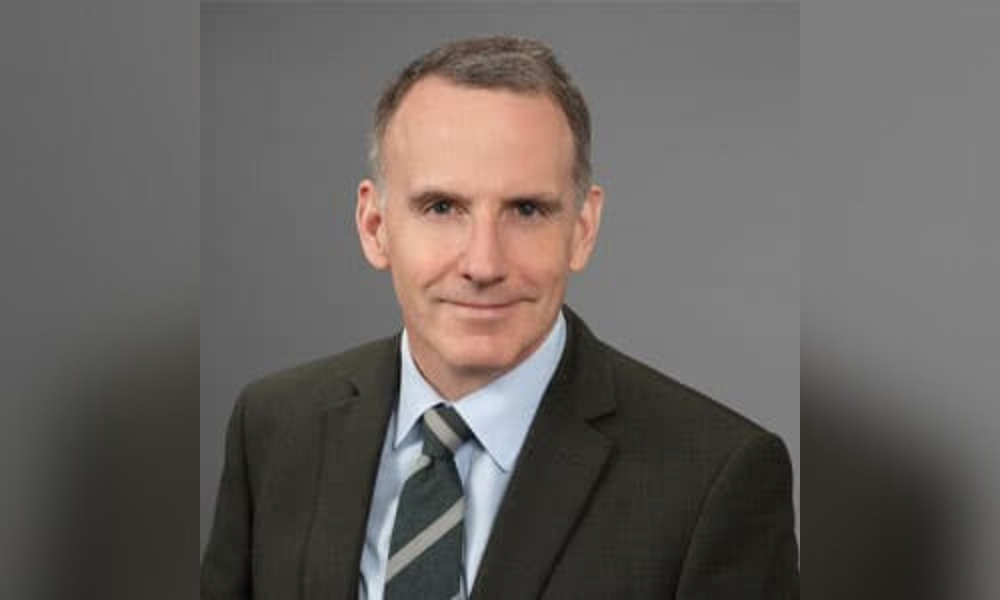Approach to education also key in creating upward mobility

While the most corrosive effects of the coronavirus pandemic are past, it’s still unclear what the aftermath of the scourge will be on the nation’s housing and office sectors. One noted academician and urban economist offers hope, describing how cities can remain a magnet for talent toward improving affordability.
Ed Glaeser (pictured), chair of the economics department at Harvard University, is an expert on cities. The focus has been the central theme of several books he’s written, including his most recent “Survival of the City: Mass Flourishing in an Age of Social Isolation.” In a presentation with CBRE following his address at the company’s Capital Markets Symposium in Arizona, he reflected on economic trends. On the heels of pandemic, it’s cities that embrace construction – unencumbered by draconian regulations inhibiting growth – that will fare best, he suggested.
“Cities don’t grow unless you build real estate that is needed to house those people,” Glaeser, a professor at Harvard for 31 years, said. “And if you’re going to have a regulatory regime that makes it incredibly difficult to build, then you’re just not going to grow. And that is a huge difference between a place like Boston and a place like Houston, Texas. Boston makes it very difficult to build up, particularly in the city, the suburbs more than the city, in fact. Whereas Houston, Dallas, Atlanta, Phoenix, they’re all open for business, they’re open for building and that just makes a huge difference. But the fact they’re open for building means that is not an ingredient for rising real estate prices. That’s an ingredient for moderate real estate prices and affordability.”
Upward mobility starts in the classroom
Another inhibitor to eventual homeownership lies in the paradigm from which core education is assessed, he noted. A lack of upward mobility abounds in multiple cities across the US given a lack of opportunity for many, Glaeser added. “If you come here, you’re a 25-year-old, you’re an immigrant, they’re still doing a great job of providing upward mobility for those people getting meshed in the great urban service economy of leisure, hospitality, retail trade,” Glaeser said. “But for kids who grew up in more segregated areas, our cities are often failing them. And part of the difference is adults, even adults who come with less income, typically live very integrated lives. They work in a firm with lots of different types of people around them and this means that they should be fully enmeshed in the great workings of a vast urban economy.”
Low incomes tend to lead to a type of segregation that does not lend itself to the upward mobility needed for strong communities, he suggested. “Too often, poor kids live lives that are much more segregated, not just in terms of where they wake up and go to sleep in the morning, but who they play with, what their school is like and so they don’t get to enjoy the advantages of this sort of great mixed city that is out there,” he said. “And our schools are our best way of doing this. But of course, because so many middle-class parents feel like they need to run away from the schools, that’s what creates the sense of segregation in those schools to begin with.”
His vision toward remedying such isolation lies in more robust vocational training: “I am somewhat attracted by doing more that is around traditional school. Wraparound vocational skills that don’t displace existing teachers. That teaches people to be plumbers or computer programmers after school, on the weekends, in the summer. And the beauty of vocational training is one you can adjust to quickly. You’re not committed to a set of tenured teachers, you can scale it up, you can scale down and you can make it pay for performance because you know whether or not someone’s learned how to be a programmer when they’re done with the schooling. It’s very clear.”
Knowledge is more important than space
He suggested the ideal of achieving a traditional college education is somewhat anachronistic in the 21st century: “I think the beauty of wraparound vocational training is we’re not shutting off people’s
dreams. They can keep on going their traditional path. We’re not trying to say any kid should not graduate from high school and we’re not trying to say that anyone who wants to go to college shouldn’t go to it,” he said. “But they should, if they’re inclined. They should have the opportunity to learn something that can give them a high wage job without their having to go to college, without their having to go away. And who knows? They may love being a carpenter, an electrician. I mean, and so we’re just about giving opportunities and trying something out.”
In his speech, Glaeser asserted that “knowledge is more important than space.” Spencer Levy, global client strategist and senior economic advisor for CBRE, later asked him if the sentiment was counterintuitive to the tactic of returning people to offices. “What I meant by that is that our desire to enjoy having lots of space around us became less valuable relative to knowledge. I use the example of a trading floor. We have really rich people who are occupying relatively small amounts of square footage per capita.”
Despite heightened talk of increasing the quality of office environments – light, air water quality and other dynamics – as a way to bring people back into offices, Glaeser said it likely won’t be sufficient. “I don’t think they’re enough,” he said. “They’re just slightly blunting the fear of disease. It has to be about fun and has to be about the economic returns. And both of these are important. But having decent ventilation does not make an office exciting and fun. It’s a good thing to have, but it’s not enough.”



